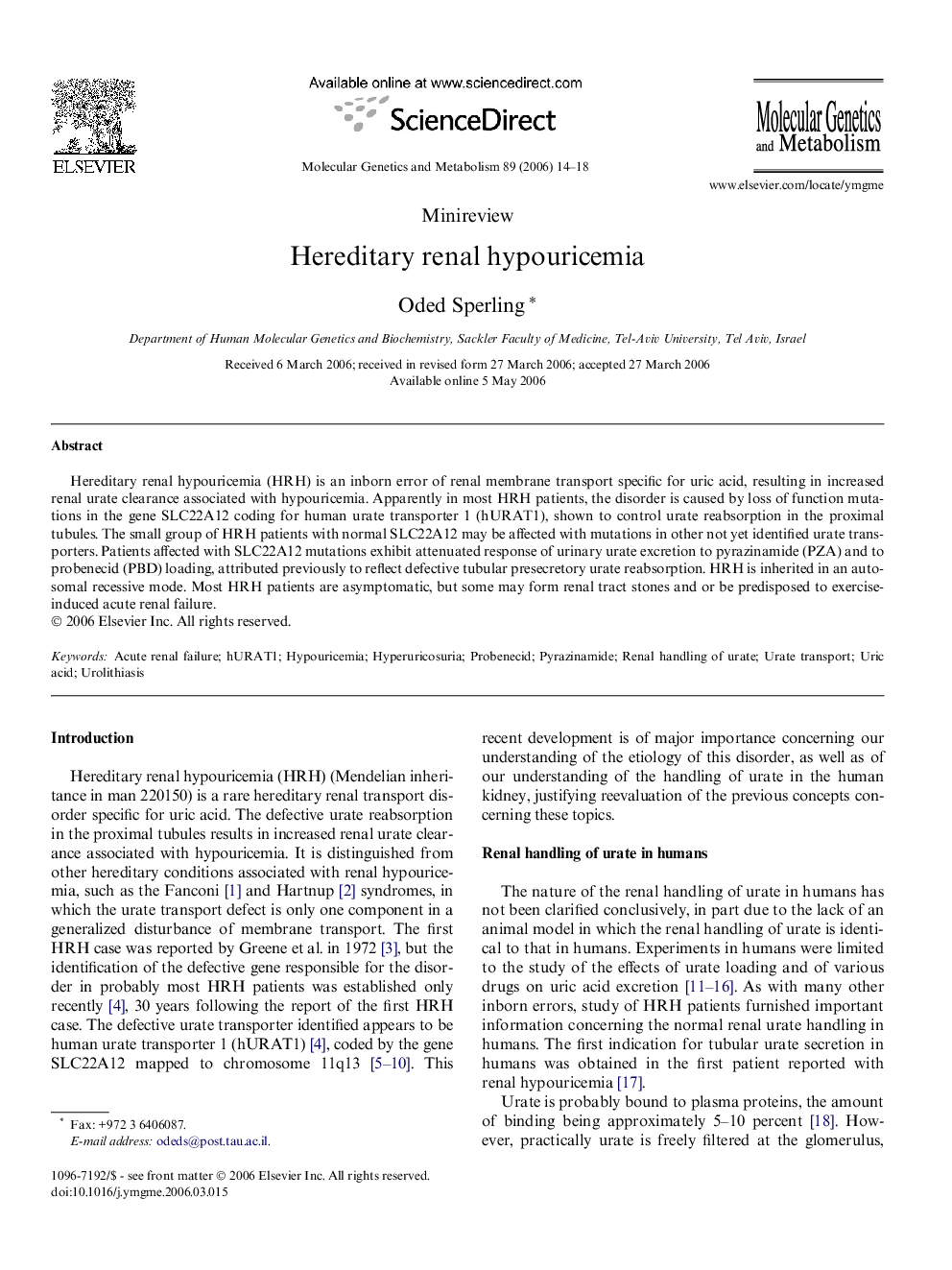| Article ID | Journal | Published Year | Pages | File Type |
|---|---|---|---|---|
| 2000286 | Molecular Genetics and Metabolism | 2006 | 5 Pages |
Hereditary renal hypouricemia (HRH) is an inborn error of renal membrane transport specific for uric acid, resulting in increased renal urate clearance associated with hypouricemia. Apparently in most HRH patients, the disorder is caused by loss of function mutations in the gene SLC22A12 coding for human urate transporter 1 (hURAT1), shown to control urate reabsorption in the proximal tubules. The small group of HRH patients with normal SLC22A12 may be affected with mutations in other not yet identified urate transporters. Patients affected with SLC22A12 mutations exhibit attenuated response of urinary urate excretion to pyrazinamide (PZA) and to probenecid (PBD) loading, attributed previously to reflect defective tubular presecretory urate reabsorption. HRH is inherited in an autosomal recessive mode. Most HRH patients are asymptomatic, but some may form renal tract stones and or be predisposed to exercise-induced acute renal failure.
